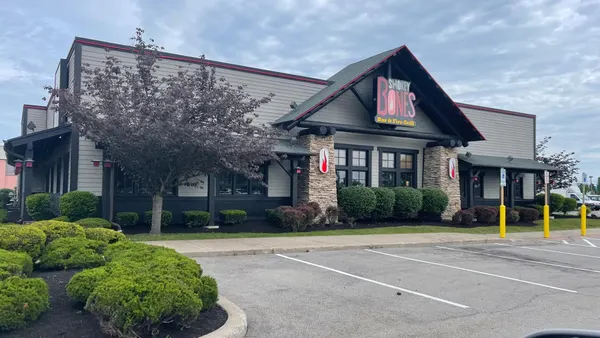It's a new era for hospitality payments. For years, payment processing has often been viewed as a back-office necessity — a cost of doing business. But a fundamental shift is underway, one that sees payment infrastructure not as a simple transaction tool but as a front-line strategic asset that could drive growth, improve security, and enhance the customer experience.
The 2025 Enterprise Needs Assessment Study, sponsored by Toast, FreedomPay, and Hanover Research, surveyed 200 C-level executives and IT decision-makers to uncover what’s truly driving decisions around payments and point-of-sale (POS) in 2025. The findings reveal a landscape of paradoxes and opportunities that every hospitality leader must understand.
The security paradox: confidence vs. reality
A surprising 97% of executives expressed confidence in their ability to meet future security goals. This sense of security, however, exists alongside a stark reality: Viewing data breaches and theft as a primary security issue has jumped 15% from 2024 to 2025. This isn’t a theoretical concern; the average cost of a data breach in the hospitality industry has risen to an alarming $3.82 million, a 13% increase from 2023.
This paradox highlights a critical blind spot. While leaders feel secure, the very risks they face are growing. A confident mindset is essential, but it must be paired with proactive, integrated security measures to protect both the business and its guests.
The integration edge: a mission-critical necessity
Features once considered "nice-to-haves" are now mission-critical. The study found that when systems talk to each other, everyone wins. A staggering 100% of merchants surveyed said that integrated solutions are very or extremely valuable, and 92% report a high or full level of integration with their other software systems. The top benefit? Increased data security, cited by 52% of respondents. An integrated solution helps data flow seamlessly and securely across all touchpoints, from a guest making a reservation to a customer paying their bill.
This level of integration is not just about security; it’s about scalability. As the study notes, 92% of leaders believe an integrated solution can scale well as their business grows. This allows for operational agility, personalized customer experiences, and embedded trust — the very pillars of long-term competitive advantage.
The mindset shift: from fraud to data privacy
The focus of security concerns is also shifting. Worry over fraudulent payments has dropped by 68% from 2024 to 2025, but this decline has been replaced by a more pervasive challenge previously stated: concerns over data breaches and theft. In fact, security and data privacy are now considered the number one challenge for hospitality decision-makers, with it being named top challenges by 48% and 47% of leaders for payment systems and POS solutions, respectively.
This new mindset understands that payment security is no longer just about preventing bad transactions; it’s about helping safeguard sensitive customer information at every touchpoint.
What your guests want: the demand for flexibility
Hospitality leaders want to empower guests to pay their way, and the flexibility in payment methods makes integration non-negotiable. The study reveals that a variety of payment methods are critical to operations, from traditional credit (97%) and debit cards (96%) to mobile payments (94%), eWallets (83%), and contactless payments (67%). To meet these expectations and avoid losing business, hospitality leaders must ensure their payment systems can handle this diverse array of options.
Your path forward
The 2025 Enterprise Needs Assessment Study offers a powerful foundation to help you navigate this new era with confidence. You can use these insights to guide your questions, inform your decisions, provide a benchmark for your operations, and challenge your assumptions.
To learn how your POS and payment system can be transformed from a simple processor to a strategic competitive advantage, download the full whitepaper today.










